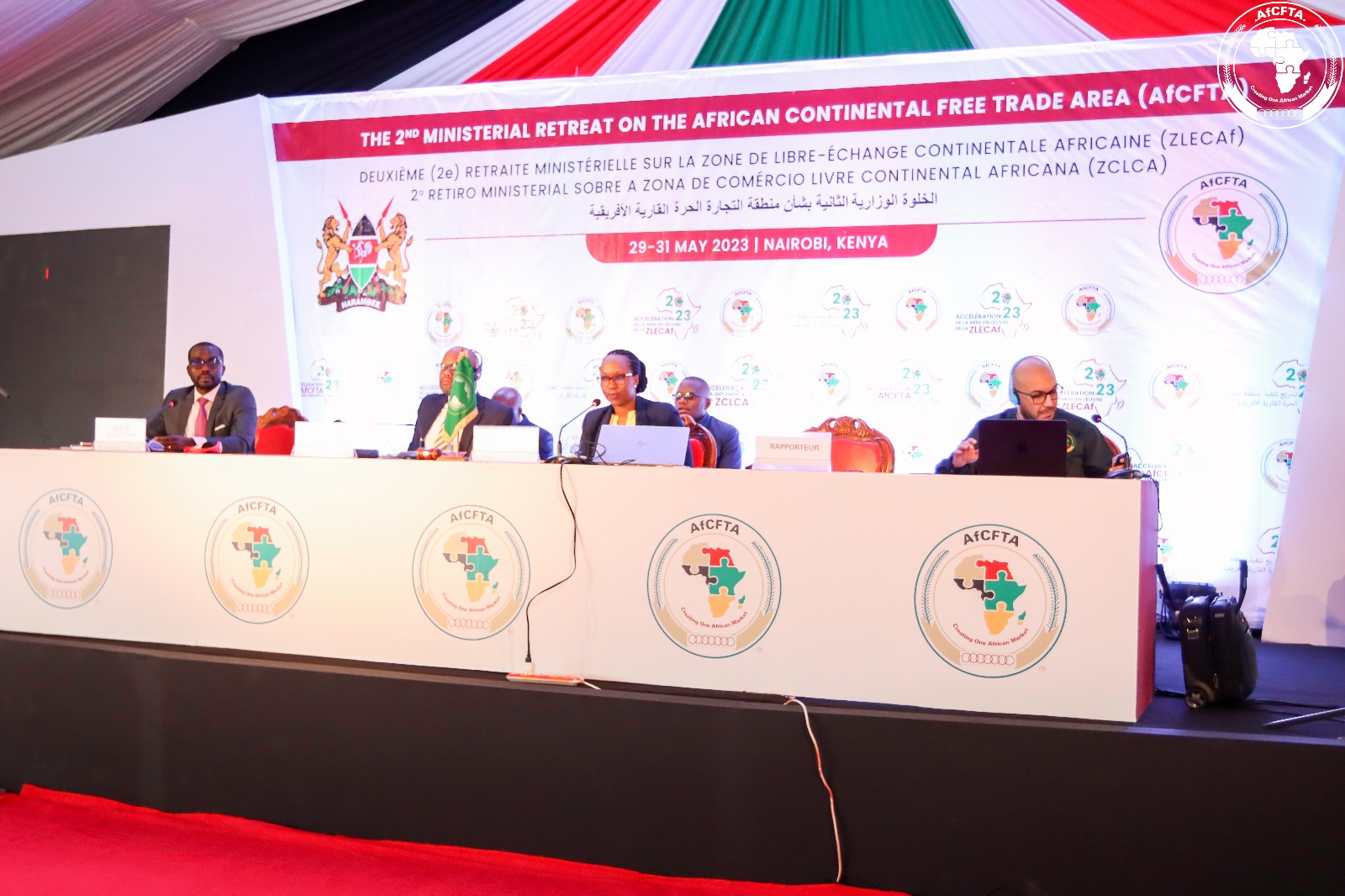Kenya’s President William Ruto has underscored the need to come up with a solution for disparities in currencies which act as an obstacle to free trade in Africa.
Speaking during the opening of the Private Sector Dialogue on the African Continental Free Trade Area (AfCFTA), the Kenyan President decried bottlenecks caused by lack of a unified payment system in cross border trade.
In particular, Ruto mentioned the need to consider Africa’s reliance on the US dollar for continental trade and the resulting consequences of dollar shortage facing African countries.
“Trade cannot happen without an efficient and unified payment system,” President Ruto noted.
“Although there has been introduction of regional payment infrastructures in the continent, we lack a single system that seamlessly facilitates trade among our nations, eliminating barriers caused by varying currencies.”
Ruto noted that it was a high time for the continent to explore avenues of ensuring self sufficiency and self determination.
Further in his speech, President Ruto stated that he was in talks with his counterparts from Uganda and the Democratic Republic of Congo (DRC) to ensure seamless movement between the Indian Ocean and the Atlantic.
He committed to ensuring easier movement of goods and people by scrapping visa requirements and consequently boosting trade volumes between African nations.
Free Trade and Private Sector Participation
Additionally, the President called for more input from the private sector in the implementation of free trade.
According to him, the free trade discourse had been dominated by inter-governmental relations leaving out players in the private sector.
As such, he reiterated the need to create room for the participation of stakeholders in the private sector through a multi sectoral approach.
AfCFTA Secretary-General Wamkele Mene noted that the private sector was critical to the implementation of free trade on the continent.
“In Africa, the private sector is estimated to account for about 80 percent of total production, 67 percent of investments, 75 percent of credit available and of course employs 90 percent of people,” Mene stated.
Over 54 ministers of trade from the continent are expected to converge in the Kenyan capital for the development of the AfCTA implementation and roadmap in the ongoing Kenya International Investment Conference (KIICO).
In February, African Heads of States met in Addis Ababa to discuss an array of challenges facing the continent, including easing trade barriers.


